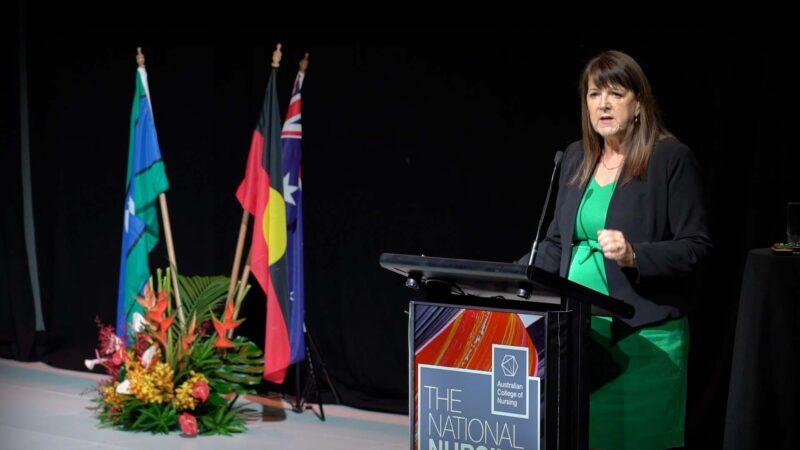People In Health Care
Dr Marina Berbic
Genetic Pathologist and Deputy Director of Genetics
Douglass Hanly Moir Pathology
Dr Marina Berbic is a genetic pathologist and the Deputy Director of Genetics at Douglass Hanly Moir Pathology – a laboratory based in Sydney and part of Sonic Healthcare. The genetics department at Douglass Hanly Moir offers a wider array of genetic tests across many domains, and the medical leadership model ensures the highest possible standard of care and commitment to patient safety.
Australian Health Journal spoke to Dr Berbic about her career and being a genetic pathologist. She started as a junior doctor in obstetrics and gynaecology after completing a medical degree, though never thought about specialising in pathology. The more she learned about genetic pathology, the more intrigued she became, realising that this specialty aligned with both her strengths and interests.
Dr Berbic has always been interested in science, technology, and innovation. She first studied for a Bachelor of Medical Science degree, followed by a Master’s in Reproductive Health and Human Genetics and then a PhD in Reproductive Medicine. Dr Berbic has long-standing academic interests, both from a research and teaching perspective. She continues to be involved in medical education at the University of New South Wales in her role as an Adjunct Senior Lecturer.
After completing her specialist training and attaining fellowship of the Royal College of Pathologists of Australasia, she commenced her role as a genetic pathologist at Douglass Hanly Moir and later became the Deputy Director of Genetics department. Her role involves providing clinical governance and medical leadership that governs all aspects of medical testing in genetics.
In this interview, Dr Berbic talks about the exciting area of genetic pathology impacting multiple areas of medicine including paediatrics, obstetrics and gynaecology, cardiology, neurology, oncology, and other fields.
The results of genetic testing have a potential impact on the patient’s diagnosis, the decisions that couples may take when they’re making reproductive decisions, and also have predictive implications. The testing results may influence therapy, selection, or patient management and may have far ranging impact on the individual as well as their family.
You Might also like
-
Role of the Chief Nursing Officer
Professor Alison McMillan PSM spoke with Australian Health Journal about the role of Chief Nursing and Midwifery Officer at the Australian Government Department of Health and Aged Care.
Alison was appointed as our Chief Nursing and Midwifery Officer in November 2019.
In June 2021 Alison was awarded a Public Service Medal for outstanding public service to driving the Government’s national health response priorities during the COVID-19 pandemic, particularly to infection prevention measures.
-
Trends report identifies prototyping targets for breakthroughs in digital and hybrid futures
Vishaal Kishore, a Professor of Innovation and Public Policy at RMIT in Melbourne, serves as the Executive Chair of the RMIT-Cisco Health Transformation Lab and RMIT’s Director of Impact. Led by the RMIT-Cisco Health Transformation Lab, the National Industry Innovation Network (NIIN) Health Alliance combines the best minds, technologists, industry capabilities and academic resources to solve pressing industry and social challenges through technology-driven innovation. The NIIN aims to pool insights and expertise to address national health challenges, marking its first vertical focus on health.
-
Thyroid health into pregnancy
‘Without an adequate amount of thyroid hormone mothers can be exposed to hypertensive disorders of pregnancy, including gestational hypertension and preeclampsia or eclampsia, which affect around 10% of pregnant women and are the leading causes of maternal and neonatal mortality worldwide. Mothers who suffer from hypertensive disorders during pregnancy are at increased risk of long-term cardiovascular consequences and hypertensive disorders in subsequent pregnancies. Evidence also indicates a risk of reduced cognitive ability to their offspring.
‘Knowing if you are genetically predisposed to Hashimoto’s or Graves’ Diseases, which are both thyroid autoimmune disorders is important to be aware of, to ensure all appropriate tests are ordered. Autoimmune disorders may predispose mothers to a thyroid problem during pregnancy’, says Professor Creswell Eastman, who also serves as the ATF’s Principal Medical Advisor.



